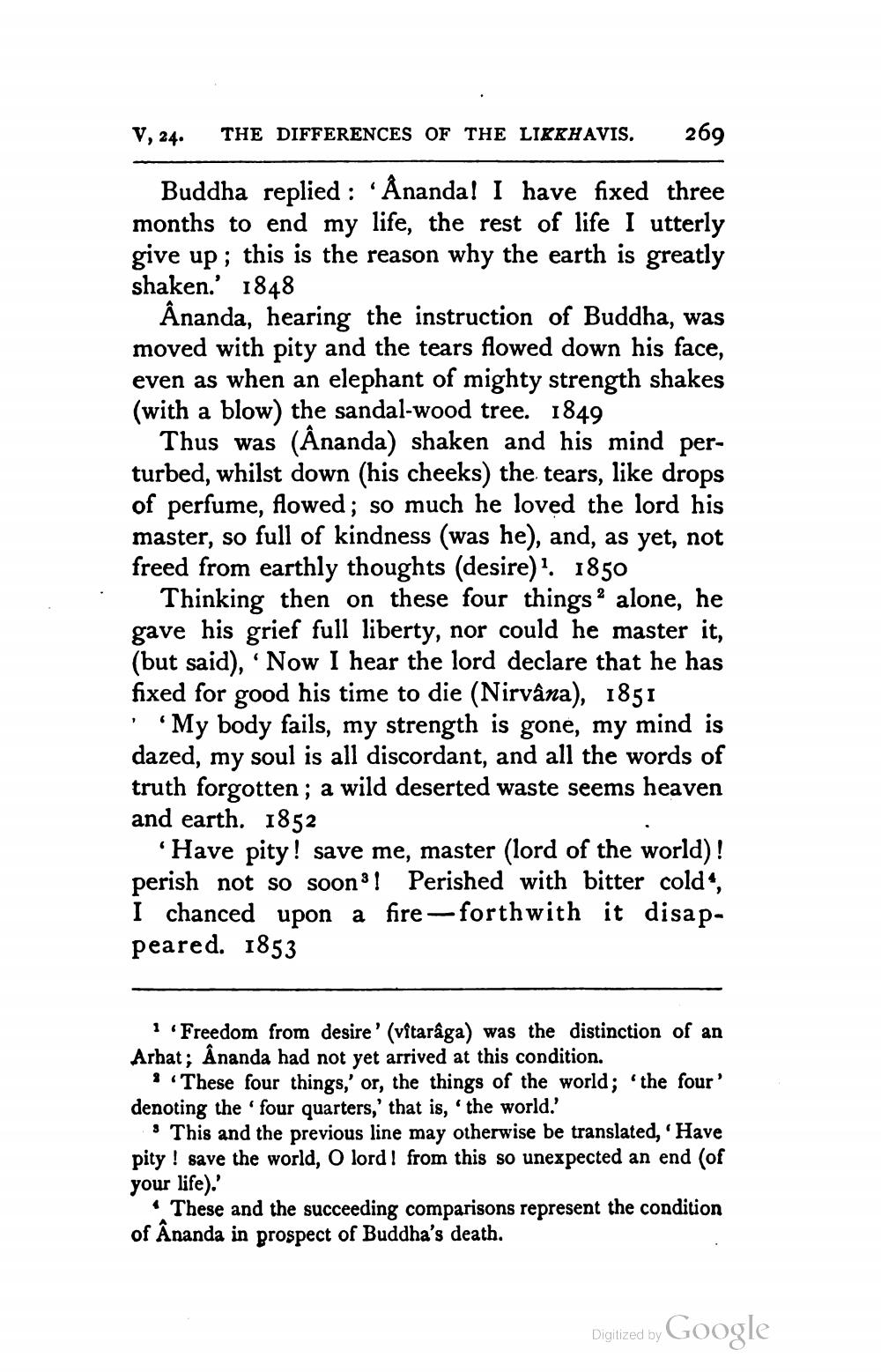________________
V, 24.
THE DIFFERENCES OF THE LIKKHAVIS.
Buddha replied : ‘Ånanda! I have fixed three months to end my life, the rest of life I utterly give up; this is the reason why the earth is greatly shaken.' 1848
Ânanda, hearing the instruction of Buddha, was moved with pity and the tears flowed down his face, even as when an elephant of mighty strength shakes (with a blow) the sandal-wood tree. 1849
Thus was (Ananda) shaken and his mind perturbed, whilst down (his cheeks) the tears, like drops of perfume, flowed; so much he loved the lord his master, so full of kindness (was he), and, as yet, not freed from earthly thoughts (desire)". 1850
Thinking then on these four things? alone, he gave his grief full liberty, nor could he master it, (but said), 'Now I hear the lord declare that he has fixed for good his time to die (Nirvâna), 1851 ''My body fails, my strength is gone, my mind is dazed, my soul is all discordant, and all the words of truth forgotten; a wild deserted waste seems heaven and earth. 1852
Have pity! save me, master (lord of the world)! perish not so soon! Perished with bitter cold, I chanced upon a fire-forth with it disappeared. 1853
1 'Freedom from desire' (vitarâga) was the distinction of an Arhat; Ananda had not yet arrived at this condition.
3 These four things,' or, the things of the world; the four' denoting the four quarters,' that is, the world.
This and the previous line may otherwise be translated, 'Have pity! save the world, O lord! from this so unexpected an end (of your life).'
These and the succeeding comparisons represent the condition of Ânanda in prospect of Buddha's death.
Digitized by Google




